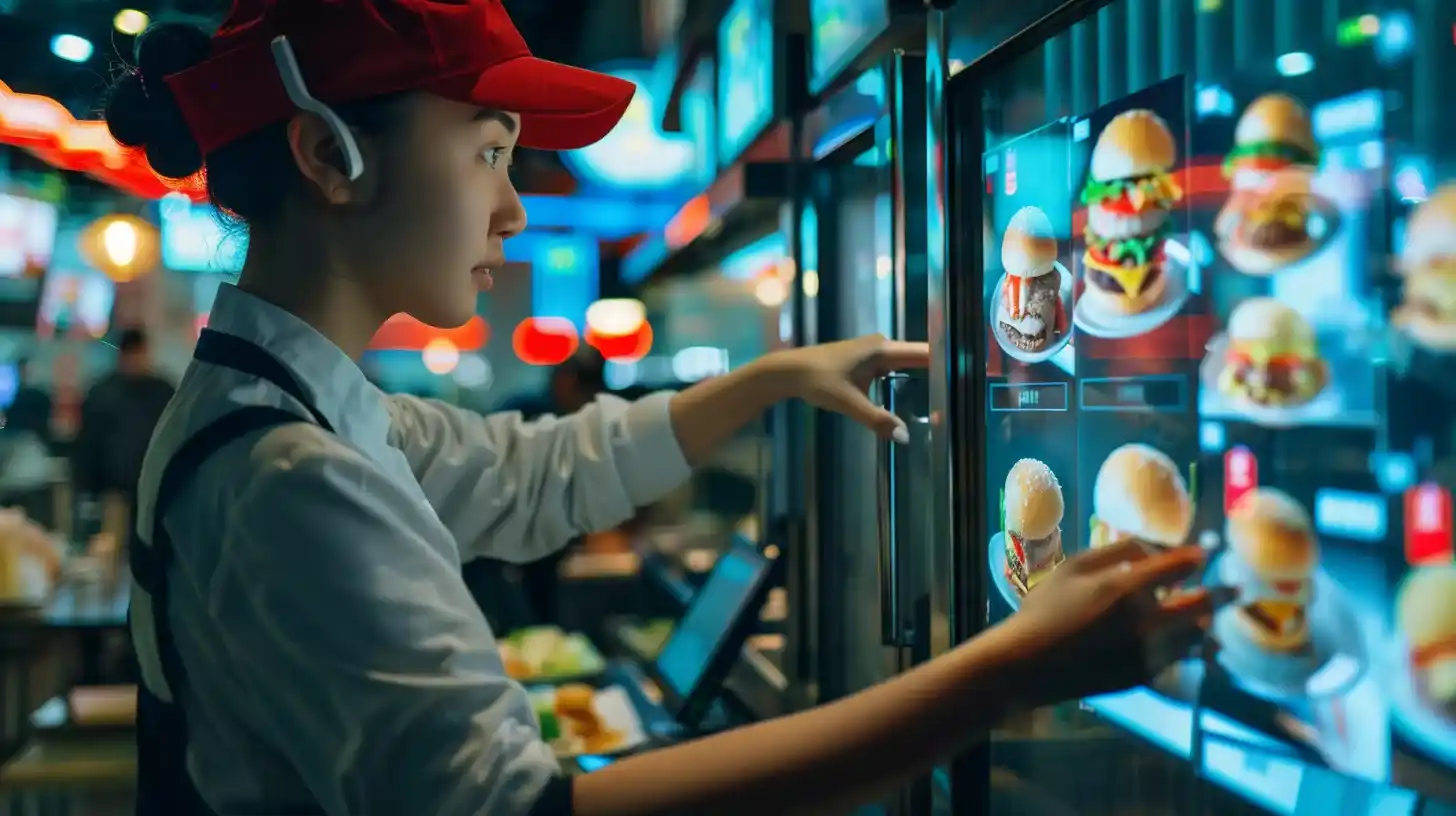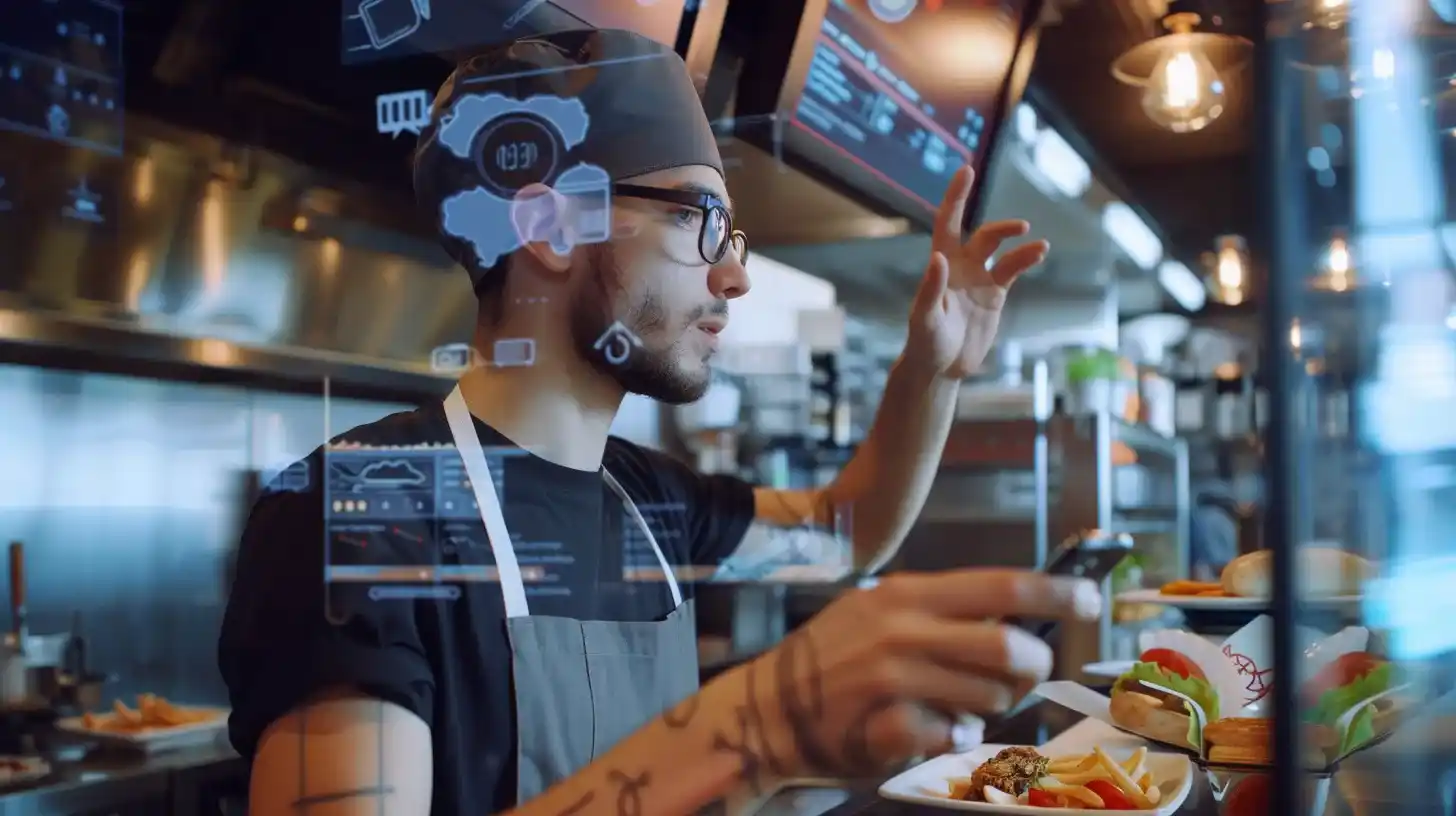Table of Contents
Yum! Brands, the parent company of popular fast-food chains such as KFC, Pizza Hut, Taco Bell, and The Habit Burger Grill, is making significant strides in the integration of technology within its operations. According to a recent report by the Wall Street Journal, the company is setting a new standard in the industry by adopting an “AI-first” approach.
Investing in Digital Transformation
Yum! Brands has been steadily increasing its investment in technology and automation. The company’s Chief Digital and Technology Manager, Joe Park, revealed that approximately 45% of the company’s sales, amounting to $30 billion, are now digital. This figure represents a near doubling from the levels seen in 2019.
Park shared the company’s vision for quick-service restaurants (QSRs), stating, “Our vision of QSRs is that an AI-first mentality works every step of the way. If you think about the major journeys within a restaurant that can be AI-powered, we believe it’s endless.”
AI in Fast Food: Beyond Customer Experience

The implementation of AI in fast food is not merely about enhancing the customer experience. For industry giants like Yum! Brands, the use of AI extends to improving operational efficiency and reducing costs. This shift towards AI has been particularly noticeable with the introduction of California’s new minimum wage law, which has led to most fast-food workers earning $20 per hour.
SuperApp: The AI-Powered Tool for Restaurant Managers
Yum! Brands has developed a mobile application for restaurant managers, known as SuperApp. This app, currently in use by more than 8,700 Pizza Hut and KFC outlets, is testing generative AI. This feature allows team members to ask operational questions, such as how to set oven temperatures.
In addition to answering operational queries, SuperApp can also be used to purchase ingredients and schedule employee shifts. A new augmented reality feature is being developed that could assist workers in learning how to prepare new menu items. To maintain consistency, the SuperApp could also serve as a channel for distributing updated brand assets and training material that align with corporate brand guidelines.
AI in Fast Food: Funding the AI Revolution
Yum! Brands is financing its investments in artificial intelligence (AI). The company is integrating AI into its operations, from customer service to restaurant management, and this requires significant financial resources.
The funds for these investments are not entirely coming from the company’s pocket. A portion of the money is derived from the fees that franchise owners pay to Yum! Brands. When someone owns a franchise of a Yum! Brands restaurants, such as KFC, Pizza Hut, or Taco Bell, pay certain fees to the parent company. These fees can be for various purposes, including the rights to use the brand, ongoing support, and access to corporate resources.

In this case, a part of these franchise fees is being used to fund the company’s AI initiatives. This method of funding allows Yum! Brands to invest in AI without bearing the entire financial burden itself.
However, the exact amount of these fees, or what proportion they constitute of the total AI investment, has not been disclosed by the company. This lack of specific figures is not uncommon in corporate financial matters, which companies often keep confidential for strategic reasons.
AI in Fast Food: The Future of AI in Fast Food
The COVID-19 pandemic has significantly impacted the fast-food industry, prompting a rapid shift towards technologies like digital ordering and drive-thrus. With social distancing measures and lockdowns in place, traditional dine-in services were largely disrupted. As a result, fast-food chains had to quickly adapt to continue serving their customers while ensuring safety.
Digital ordering became a key solution during this time. Customers could order food from the safety of their homes using mobile apps or websites, and then pick up their order or have it delivered, minimizing physical contact.
Similarly, drive-thrus became even more popular during the pandemic. They allowed customers to pick up their food without leaving their cars, providing a convenient and safe option.
Despite these concerns, Yum! Brands have emphasized that their employees will always play a critical role. While AI can handle certain tasks, there are aspects of the restaurant experience that require a human touch. For instance, providing excellent customer service, preparing food, and maintaining cleanliness and safety standards are tasks that benefit greatly from human involvement.